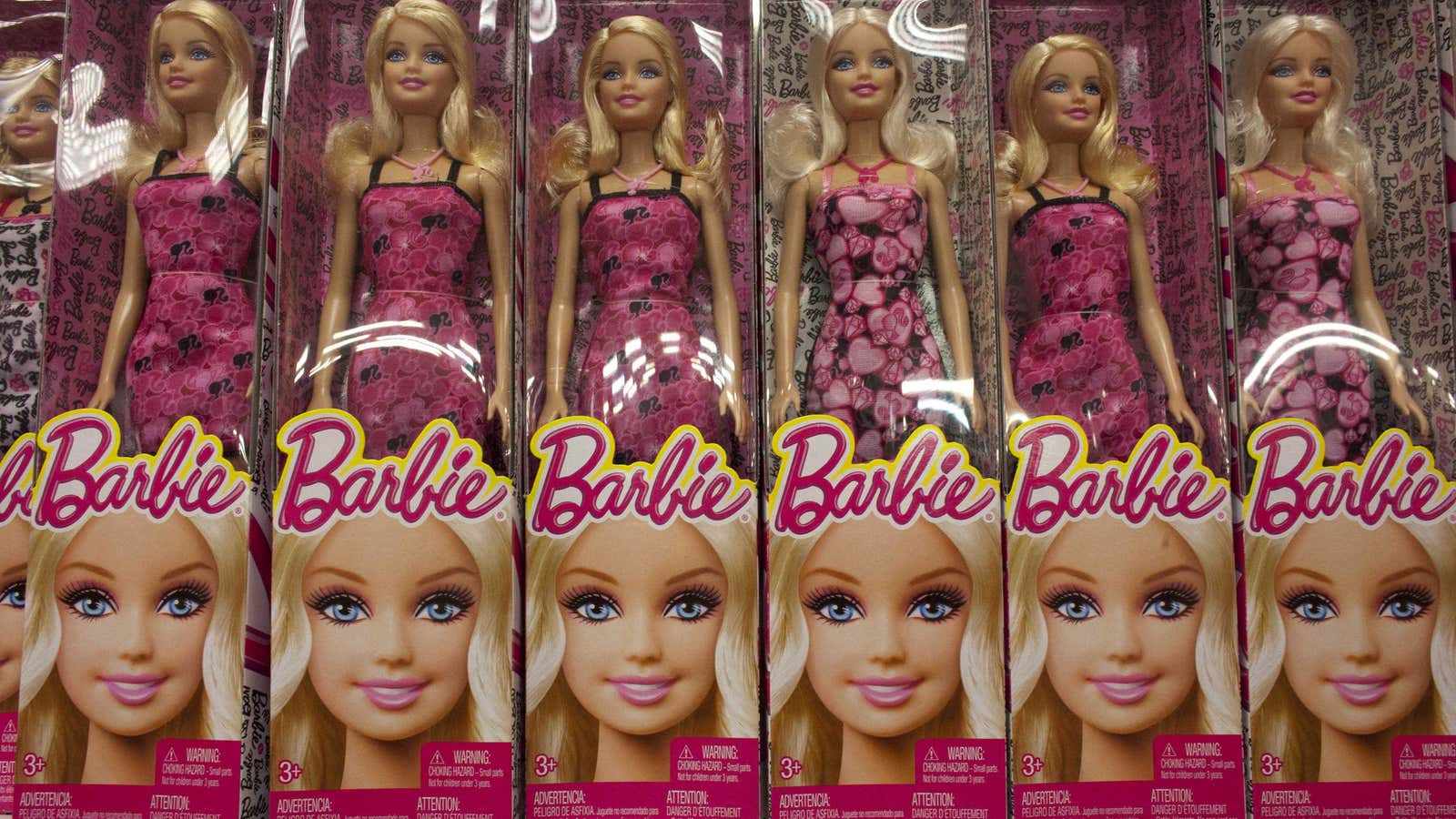A new advertisement from Mattel shows how children typically play with dolls: by using their imagination. It asks: ”What happens when girls are free to imagine they can be anything?”
The little girls appear as pint-sized professionals—an academician, a veterinarian, a business traveler, and a men’s soccer coach—offering their adorable wisdom to the grownups around them. The vision we have for ourselves as adults, the ad suggests, goes back to the imaginary play we engage in as children.
Mattel is clearly feeding the current appetite for girl-power marketing, but presumably it also is trying to counter an argument it has faced for decades: that Barbie is anti-feminist, that it perpetuates a detrimental, hyper-sexualized stereotype of pink, sugar-coated womanhood.
It’s true this ad is light on the pink, and the message feels like an empowering one for girls. But Mattel still doesn’t answer a fundamental criticism about the dolls themselves. It’s great to encourage girls to imagine working in any number of exciting fields, but should they be encouraged to imagine themselves doing so with anatomically impossible body dimensions? With waists that would not fit a woman’s internal organs? With feet that are molded to fit tiny, tiny high heels?
Quartz reached out to Mattel to ask, and will update this post with any comment.
The Barbie brand remains a profitable one but its sales have been falling for years. Mattel has been trying to reconnect with consumers by introducing superhero dolls whose dimensions more closely resemble those of girls, rather than adult runway models, and now it’s trying to change the image of Barbie herself. But as long as she looks the way she does, the effect may not hit home.
